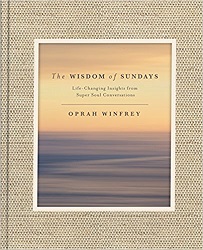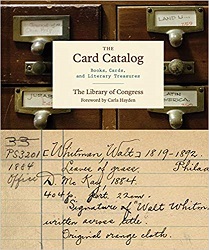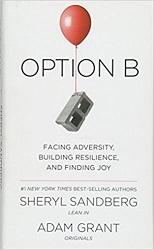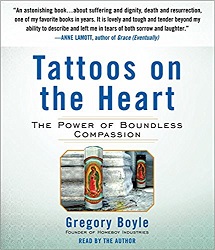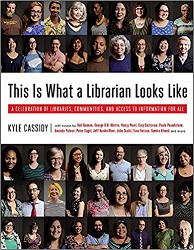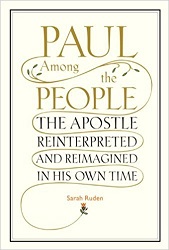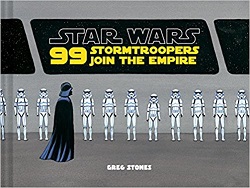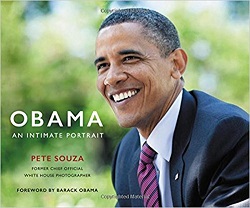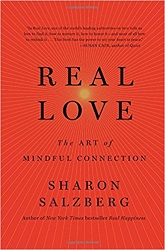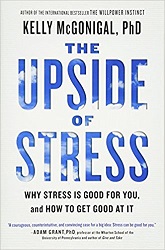 The Upside of Stress
The Upside of Stress
Why Stress Is Good for You and How to Get Good at It
by Kelly McGonigal, PhD
Avery (Penguin Random House), 2015. 279 pages.
Starred Review
The same friend who recommended Kelly McGonigal’s book The Willpower Instinct to me also recommended The Upside of Stress. Even though I don’t think of myself as having a big problem with stress, I also hadn’t thought of myself as having a big problem with willpower – so this time, I put the book on hold right away, and was not surprised when it turned out to be outstanding.
We’ve all heard about the dangers of stress. Too much stress is bad for you, right? Well, this book looks more closely at that question. It turns out that if you think stress is bad for you, then it is. But if you focus on the upsides of stress – and there are many – stress can actually be good for you.
So all by itself, reading this book can make you healthier! You will learn about the many positive effects of stress, thus breaking the belief that stress is bad for you, thus ensuring it is not as bad for you.
On top of that, of course, you’re going to be much happier, the next time you’re in a stressful situation, when you start remembering the good it can do you.
Here’s how the author summarizes her purpose after she saw these new studies about stress.
So, my goal as a health psychologist has changed. I no longer want to help you get rid of your stress – I want to make you better at stress. That is the promise of the new science of stress, and the purpose of this book.
I like the way, in both her books, she bases everything on scientific studies.
It’s helpful to know a little about the science behind embracing stress for two reasons. First, it’s fascinating. When the subject is human nature, every study is an opportunity to better understand yourself and those you care about. Second, the science of stress has some real surprises. Certain ideas about stress – including the central premise of this book: that stress can be good for you – are hard to swallow. Without evidence, it would be easy to dismiss them. Seeing the science behind these ideas can help you consider them and how they might apply to your own experiences.
The advice in this book isn’t based on one shocking study – even though that’s what inspired me to rethink stress. The strategies you’ll learn are based on hundreds of studies and the insights of dozens of scientists I’ve spoken with. Skipping the science and getting straight to the advice doesn’t work. Knowing what’s behind every strategy helps them stick. So this book includes a crash course in the new science of stress and what psychologists call mindsets. You’ll be introduced to rising-star researchers and some of their most intriguing studies – all in a way I hope the reader can enjoy. If you have a bigger appetite for scientific details and want even more information, the notes at the end of this book will let you dig deeper.
But most important, this is a practical guide to getting better at living with stress. Embracing stress can make you feel more empowered in the face of challenges. It can enable you to better use the energy of stress without burning out. It can help you turn stressful experiences into a source of social connection rather than isolation. And finally, it can lead you to new ways of finding meaning in suffering.
She ends the introduction with big goals for her readers – and I have to say that this book really does move you in this direction:
Why would seeing the good in stress help in these circumstances? I believe it is because embracing stress changes how you think about yourself and what you can handle. It is not a purely intellectual exercise. Focusing on the upside of stress transforms how you experience it physically and emotionally. It changes how you cope with the challenges in your life. I wrote this book with that specific purpose in mind: to help you discover your own strength, courage, and compassion. Seeing the upside of stress is not about deciding whether stress is either all good or all bad. It’s about how choosing to see the good in stress can help you meet the challenges in your life.
Many of the interesting studies of stress looked at people’s biological response to stress. You’ve all heard of fight-or-flight, right? Well, that’s only one possible response to stress. We find different physiological changes in the different responses.
There are several prototypical stress responses, each with a different biological profile that motivates various strategies for dealing with stress. For example, a challenge response increases self-confidence, motivates action, and helps you learn from experience; while a tend-and-befriend response increases courage, motivates caregiving, and strengthens your social relationships. Alongside the familiar flight-or-flight response, these make up your stress response repertoire.
I think my favorite chapter was titled “A Meaningful Life Is a Stressful Life.” It turns out there’s a strong correlation between high levels of stress and engaging in meaningful activities – which shouldn’t actually be a surprise. But I liked the observation that just thinking about the meaning behind your stress – why you’re doing this – can increase the physical benefits of stress. One of the studies cited just asked students to write about their values – and this simple act let them see meaning for their stress.
Since that first study, dozens of similar experiments have followed. It turns out that writing about your values is one of the most effective psychological interventions ever studied. In the short term, writing about personal values makes people feel more powerful, in control, proud, and strong. It also makes them feel more loving, connected, and empathetic toward others. It increases pain tolerance, enhances self-control, and reduces unhelpful rumination after a stressful experience.
In the long term, writing about values has been shown to boost GPAs, reduce doctor visits, improve mental health, and help with everything from weight loss to quitting smoking and reducing problem drinking. It helps people persevere in the face of discrimination and reduces self-handicapping. In many cases, these benefits are a result of a onetime mindset intervention. People who write about their values once, for ten minutes, show benefits months or even years later.
I also loved this strategy of comparing your stress to what you would go through if you were climbing Mount Everest:
Everyone has an Everest. Whether it’s a climb you chose, or a circumstance you find yourself in, you’re in the middle of an important journey. Can you imagine a climber scaling the wall of ice at Everest’s Lhotse Face and saying, “This is such a hassle”? Or spending the first night in the mountain’s “death zone” and thinking, “I don’t need this stress”? The climber knows the context of his stress. It has personal meaning to him; he has chosen it. You are most liable to feel like a victim of the stress in your life when you forget the context the stress is unfolding in. “Just another cold, dark night on the side of Everest” is a way to remember the paradox of stress. The most meaningful challenges in your life will come with a few dark nights.
Of course this was good to hear while I’m in the middle of my year of reading as many books as I possibly can for the Newbery committee. So worth it! And just remembering that is sometimes all it takes to feel more able to deal with it.
The second part of the book talks about how to get good at stress. Here’s what that means:
Embracing stress is an act of bravery, one that requires choosing meaning over avoiding discomfort.
This is what it means to be good at stress. It’s not about being untouched by adversity or unruffled by difficulties. It’s about allowing stress to awaken in you these core human strengths of courage, connection, and growth. Whether you are looking at resilience in overworked executives or war-torn communities, the same themes emerge. People who are good at stress allow themselves to be changed by the experience of stress. They maintain a basic sense of trust in themselves and a connection to something bigger than themselves. They also find ways to make meaning out of suffering. To be good at stress is not to avoid stress, but to play an active role in how stress transforms you.
She focuses on learning to use stress to help you engage, connect and grow.
When you engage with stress, you realize that your physical response can help you rise to the challenge. That’s the challenge response in action. I love math, and I remember when I had a math test coming up, I’d be excited and ready to ace that test – my physical response helped me think even more clearly. (I thought of this example when she gave an example of an athlete getting ready to compete. That one doesn’t work for me, though it probably works for more people than my math test example.)
Okay, maybe that’s not the best example for everyone. So let me contrast it with getting up in front of a large group to speak. When I was a kid, that used to always, without fail, make me shake uncontrollably. So when I started feeling nervous, I’d then dread getting the shakes – which of course made the shakes all the worse. (This was a problem when playing in flute recitals, since my entire flute would shake.)
As a matter of fact, the first time I did not shake when getting up in front of a big group was when I gave a Chalk Talk as part of a math competition in high school. Yes, my senses were heightened and my heart rate was up. But in this case, since I was absolutely sure I knew what I was doing, it only made me more alert and able to do a good job. Even knowing nothing about mindset at the time – that shows that how I thought about it made a huge difference. You can think of it as nervousness and as proof that you’re inadequate, or you can think about it as excitement and an extra performance boost.
Viewing your stress response as a resource works because it helps you believe “I can do this.” This belief is important for ordinary stress, but it may be even more important during extraordinary stress. Knowing that you are adequate to the challenges in your life can mean the difference between hope or despair, persistence or defeat. Research shows that how you interpret your body’s stress response plays a role in this belief, whether you are worried about an exam, getting over a divorce, or facing your next round of chemo.
Embracing stress is a radical act of self-trust: View yourself as capable and your body as a resource. You don’t have to wait until you no longer have fear, stress, or anxiety to do what matters most. Stress doesn’t have to be a sign to stop and give up on yourself. This kind of mindset shift is a catalyst, not a cure. It doesn’t erase your suffering or make your problems disappear. But if you are willing to rethink your stress response, it may help you recognize your strength and access your courage.
Having stress motivate you to connect is the tend-and-befriend response to stress. As I suspected, the research bears out that this response comes more naturally to women. When you’re in trouble, reach out to your community! Yes, it will help. (This is partly why church small groups are so effective. They give you a group ready to help when you’re under stress.)
The social nature of stress is not something to fear. When you take a tend-and-befriend approach, even contagious stress can be strengthening. As we’ve seen, caring creates resilience, whether the altruism is a response to rescue us from our own suffering or simply a natural reaction to the pain of others. A sympathetic stress response to another person’s suffering can spark empathy and motivate helping, which in turn enhance our own well-being. Furthermore, we shouldn’t be afraid to let others see the truth of our own struggles – especially when we need their support. In many ways, our transparency is a gift, allowing others to feel less alone and offering them the opportunity to experience the benefits of tending and befriending.
The final chapter was about using stress to increase personal growth. Yes! That chapter got me excited. I’ve come out of the worst time of my life – my divorce – and I feel like on the other side I’m much stronger and more resilient. I’ve grown. So this chapter resonated with me.
This wasn’t saying that terrible events aren’t terrible. Just that good can actually come out of them.
But as much as we want to avoid pain and suffering, it’s almost impossible to get through life without experiencing some trauma, loss, or serious adversity. If avoiding suffering isn’t possible, what is the best way to think about the experience? “Given that it’s happened,” Seery asked, “does it mean your life is ruined?” He thinks his work gives a very clear answer. “People are not doomed to be damaged by adversity.”
Here I turn to the belief that God has promised to work all things together for good. The author takes a secular approach, but she’s also saying that bad experiences can be redeemed by how you react to them.
This is a critical distinction, and one of the most important things to understand about how adversity can make you stronger. The science of post-traumatic growth doesn’t say that there is anything inherently good about suffering. Nor does it say that every traumatic event leads to growth. When any good comes from suffering, the source of that growth resides in you — your strengths, your values, and how you choose to respond to adversity. It does not belong to the trauma.
Here are some inspiring thoughts from her final reflections:
For most of its history, the science of stress focused on one question: Is stress bad for you? (Eventually, it graduated to the question, Just how bad is stress for you?)
But the interesting thing about the science of stress is that despite the overwhelmingly accepted idea that stress is harmful, the research tells a slightly different story: Stress is harmful, except when it’s not. Consider the examples we’ve seen in this book: Stress increases the risk of health problems, except when people regularly give back to their communities. Stress increases the risk of dying, except when people have a sense of purpose. Stress increases the risk of depression, except when people see a benefit in their struggles. Stress is paralyzing, except when people perceive themselves as capable. Stress makes people selfish, except when it makes them altruistic. For every harmful outcome you can think of, there’s an exception that erases the expected association between stress and something bad – and often replaces it with an unexpected benefit.
I like this personal observation:
When I committed myself to the process of embracing stress, I didn’t anticipate the biggest way it would affect my everyday experience of life. To my surprise, I started to feel a flood of gratitude in situations I would also describe as highly stressful. It wasn’t an intentional mindset shift; the gratitude just showed up. I still haven’t fully figured out why this was the biggest change for me, but it probably has something to do with what was most toxic about my experience of stress before I embraced it – a habit of resenting the things in my life that caused stress because I found the experience of stress so distressing.
For me, I’m reading this book at a good time – when my main stress is obviously from a good reason, and is very meaningful – being on the Newbery committee and trying to spend every spare moment reading. But I hope when tougher things come along, I’ll remember to look for the upside – and then the upside will actually become greater.
Got any stress in your life? I highly recommend this book.
kellymcgonigal.com
penguin.com
Buy from Amazon.com
Find this review on Sonderbooks at: www.sonderbooks.com/Nonfiction/upside_of_stress.html
Disclosure: I am an Amazon Affiliate, and will earn a small percentage if you order a book on Amazon after clicking through from my site.
Source: This review is based on a library book from Fairfax County Public Library.
Disclaimer: I am a professional librarian, but I maintain my website and blogs on my own time. The views expressed are solely my own, and in no way represent the official views of my employer or of any committee or group of which I am part.
What did you think of this book?
